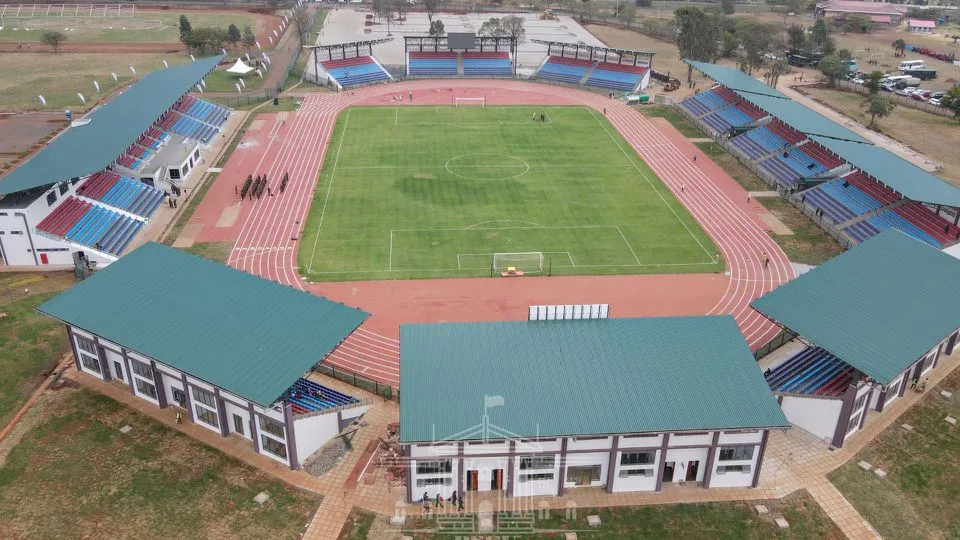Few sporting tests blend ambition, national pride, and raw pressure quite like the preparations for Kenya’s CHAN 2025. As Nairobi and the nation’s footballing heartlands brace to welcome the continent this August, behind the banners and official assurances lie human stories of grit, political wrangling, and hopes for a sporting legacy that might define a generation.
Stadium readiness – the promise and the reality
The Confederation of African Football (CAF) inspection team walked Kenya’s parade of venues with a keen eye, and their verdict cut through the official optimism: only one training facility, Ulinzi Complex, has so far been given a full green light for the upcoming African Nations Championship. The famous pitches of Moi International Sports Centre Kasarani and Nyayo Stadium—long viewed as the crown jewels of Kenyan football—remain works in urgent progress, still short of the mark for a major continental showpiece.
The upgrades at Ulinzi Complex, backed by an investment of over Ksh490 million, offered a ray of light. Yet the reality is that most other training venues, including the Police Sacco grounds, Kasarani Annex, and Kirigiti, are still scrambling toward readiness. Each inspection uncovers fresh pressures and challenges, with the CAF’s third vice president Pierre Alain Mounguengui admonishing the nation to pick up the pace—especially with less than two months before kickoff.
Cautious CAF optimism and tangible government promises
Amidst the nervous headlines, there have been pulses of progress. CAF Secretary General Veron Mosengo-Omba, during a press briefing in Nairobi, acknowledged that, compared to the barren fields and patchy seats of December, Kenya’s main stadiums have vastly improved. “I came here in December and there was no grass on several pitches, but today you can even play golf there. This shows huge progress has been made,” he noted, singling out Kasarani’s new seating and functional playing surface.
But the optimism is tempered. For all the lush grass and new stands, small details—running water in the dressing rooms, finished media tribunes, operational VAR—remain outstanding. Mosengo-Omba’s warning was plain: unless Kenya and its East African partners can deliver a successful CHAN, their bid to co-host the 2027 Africa Cup of Nations could be in jeopardy.
| CASINO | BONUS | INFO | RATING | |
|---|---|---|---|---|
|
bonus
Exciting deposit bonuses and free spins await!
See 10 Bonuses
|
info
Curacao OGL/2024/507/0541 Wide Range of casino games |
|||
|
bonus
New players get 50 free spins and a Ksh 2500 freebet!
See 7 Bonuses
|
info
BK 0000665 PG 0000405 Good combination of online casino and betting platform |
|||
|
bonus
Refer friends, win cash prizes!
|
info
BK 0000672 PG 0000412 Mobile-friendly |
|||
|
bonus
Refer a friend and claim KSH 250
See 4 Bonuses
|
info
BK 0000739 PG 0000468 BCLB license, registration bonus, variety of casino games |
Political entanglements and the pulse of the public
No major tournament arrives without drama off the pitch. Recent weeks saw a political furore after the Kasarani Indoor Arena, a hub for both sport and civic life, was withdrawn from hosting a major party launch, apparently to prioritize CHAN preparations. Opposition figures cried foul, while government officials doubled down on the narrative that sports must come first. This intersection of football and politics, always in the background, now plays out in public as the clock ticks toward kickoff.
Sports Cabinet Secretary Salim Mvurya has been a face of unwavering government resolve. “We affirmed Kenya’s full readiness to host CHAN,” he has repeated, detailing investments in everything from new irrigation at Kasarani to multimillion-shilling payments to fast-track construction. The official position is clear: every concern, every CAF recommendation, is being addressed and the nation will be ready to shine come August.
The weight of history and the dream for 2027
What animates these weeks of fevered activity isn’t just CHAN 2025, but what it represents. For the first time, CHAN will be staged across three nations—Kenya, Uganda, and Tanzania—a symbolic step toward greater regional cooperation and a dress rehearsal for the monumental task of hosting the Africa Cup of Nations two years later.
Yet the stakes on the field are equally daunting. Kenya have drawn a daunting Group A, featuring Morocco and the Democratic Republic of Congo—each two-time CHAN winners—as well as past strong performers Angola and Zambia. For Kenya’s homegrown stars, the chance to compete at home against such seasoned powerhouses is both a crucible and an inspiration.
The human pulse – from workers to fans to players
Behind statistics and official statements lie myriad daily stories. Construction crews work round the clock, often under enormous time constraints, with each seat installed or strip of turf laid telling its own tale of sweat and pride. For local fans, the countdown blends nervous anticipation with dreams of seeing their heroes take on Africa’s best on home soil. When Cabinet Secretary Salim Mvurya pledges that Harambee Stars’ preparations will soon kick into high gear, it isn’t just technical—it’s about belief, morale, and the hunger for a new chapter in Kenyan sport.
Most of all, it is the players—the heart of CHAN—who wait in the wings. Restricted to those plying their trade in domestic leagues, the tournament is a rare showcase. With preparations set to ramp up imminently, these young athletes stand on the brink not just of competition, but of history. Their preparation, too, is a race against time—matching the rhythm of the stadium workers, the planners, and every Kenyan willing the nation forward.
What comes next
Kenya’s CHAN 2025 preparations have become a national drama—a story of ambition, grit, and high stakes. There is relief in CAF’s cautious optimism, but it is paired with urgency and the weight of expectation. The next few weeks will be decisive: will the final touches come together, will the logistical and human machine click into gear, and will the tournament be not just staged, but truly owned by a nation and a region ready to take its rightful place on African football’s biggest stages?
One thing is certain: when the first whistle blows this August, it will echo far beyond the stadium walls—a testament to a nation, a people, and a sporting dream that refused to be delayed.










